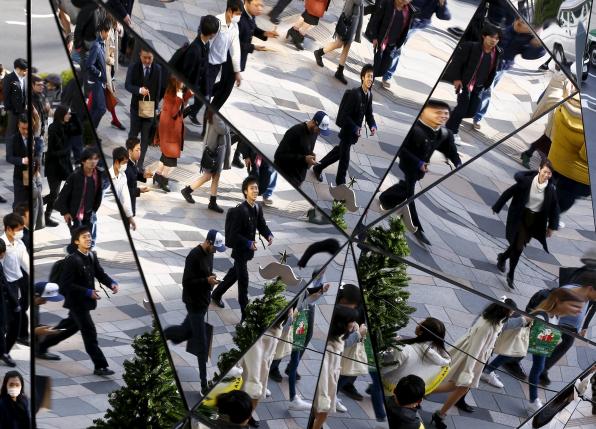Japan inflation edges up but weak spending keeps BOJ pressured

TOKYO - Japan's core consumer prices rose for the first time in five months in November but household spending tumbled, casting doubt on the central bank's view that robust consumption will help accelerate inflation to its 2 percent target.
The mixed batch of data will keep alive expectations that BOJ Governor Haruhiko Kuroda, who has said he will do whatever it takes to achieve his ambitious price goal, may nudge the central bank into expanding stimulus as early as next month.
"The downward pressure from falling oil prices seems to have run its course, which helped core CPI rise," said Hidenobu Tokuda, senior economist at Mizuho Research Institute. "But consumer prices likely won't rise as fast as the BOJ projects. We expect the central bank to ease next year."
The core consumer price index (CPI), which includes oil products but excludes volatile fresh food prices, rose 0.1 percent in November from a year earlier, against a median market forecast for a flat reading, data showed on Friday.
The rise followed a 0.1 percent drop in October and came as higher food prices moderated the pressure from slumping energy costs.
A separate BOJ index that excludes oil and fresh food - but includes processed food prices - showed consumer prices rose 1.2 percent in the year to November, as companies passed on to consumers the higher import costs from a weak yen.
But household spending suffered the biggest annual fall in eight months, down 2.9 percent in November from a year earlier and exceeding a median forecast for a 2.4 percent decline.
The government downgraded its assessment to say spending was weak, underscoring the fragile state of the economy which narrowly dodged recession in July-September.
Economics Minister Akira Amari was upbeat on the outlook, pointing to rising real wages and blaming weak November spending on unusually warm weather that hurt sales of winter clothing.
"Factors that will support consumer spending are falling into place," he told reporters. Wary of soft growth, the government plans nearly $800 billion in record spending in next fiscal year's budget. The BOJ also fine-tuned its stimulus programme to ensure it can keep up or even accelerate its money-printing to achieve its inflation target.
Policymakers are hoping a tightening job market will nudge firms into accelerating wage hikes and underpin household spending. But repeated calls from premier Shinzo Abe to boost wages have so far fallen on deaf ears. -Reuters







